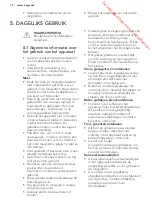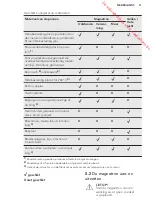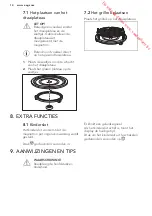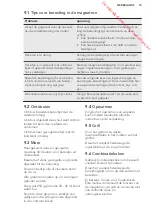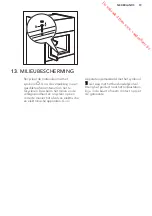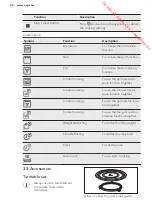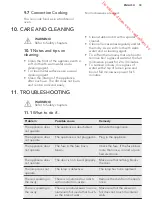
warming pads, slippers, sponges, damp cloth and
similar may lead to risk of injury, ignition or fire.
•
If smoke is emitted, switch off or unplug the appliance
and keep the door closed in order to stifle any flames.
•
Microwave heating of beverages can result in delayed
eruptive boiling. Care must be taken when handling
the container.
•
The contents of feeding bottles and baby food jars
shall be stirred or shaken and the temperature
checked before consumption, in order to avoid burns.
•
Eggs in their shell and whole hard-boiled eggs should
not be heated in the appliance since they may
explode, even after microwave heating has ended.
•
The appliance should be cleaned regularly and any
food deposits removed.
•
Failure to maintain the appliance in a clean condition
could lead to deterioration of the surface that could
adversely affect the life of the appliance and possibly
result in a hazardous situation.
•
The temperature of accessible surfaces may be high
when the appliance is operating.
•
The microwave oven shall not be placed in a cabinet
unless it has been tested in a cabinet.
•
The rear surface of appliances shall be placed against
a wall.
•
Do not use harsh abrasive cleaners or sharp metal
scrapers to clean the glass door since they can scratch
the surface, which may result in shattering of the glass.
•
Do not activate the appliance when it is empty. Metal
parts inside the cavity can create electric arcing.
•
Pay attention to the minimum dimensions of the
cabinet (if applicable). Refer to the installation
chapter.
•
The appliance must be operated with the decorative
door open (if applicable).
ENGLISH
23
Downloaded from www.vandenborre.be


